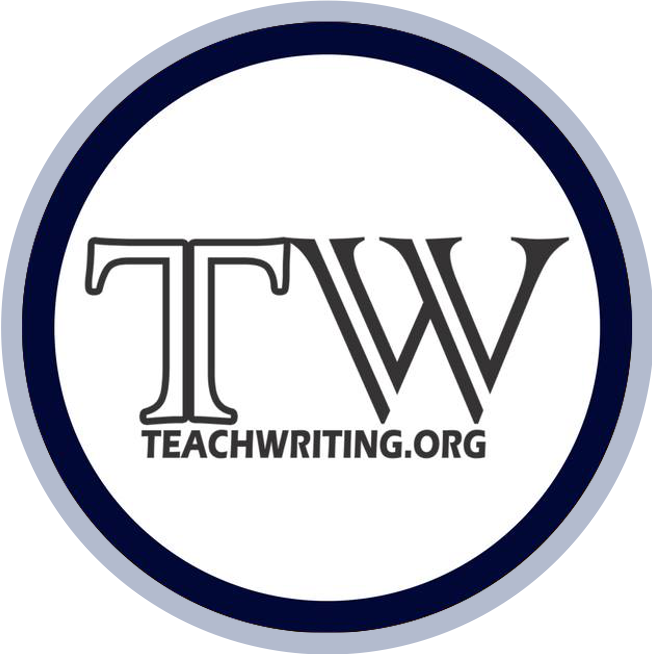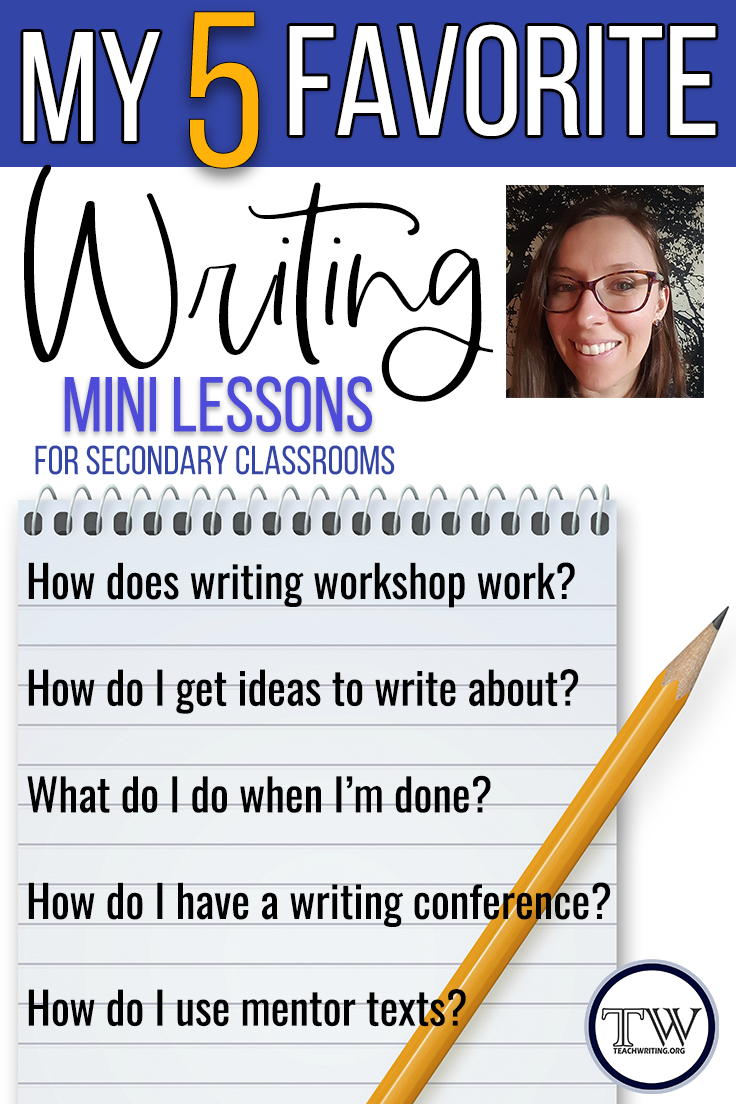My 5 Favorite Writing Mini Lessons for Secondary Classrooms
It may come as a surprise to you that my favorite mini lessons are nothing fancy. Rather, they are lessons I tend to come back to again and again throughout the year because students desperately need them. They are lessons that focus less on content and more on behavior and the structure of writing workshop. Writing and reading workshop started in the elementary classroom and many secondary teachers are realizing the benefits to this style of teaching reading and writing. If you are one of those secondary teachers then you should definitely teach these mini lessons!
Favorite Mini Lesson #1
How does writing workshop work in a secondary classroom?
A lot of secondary teachers feel they don't have time to implement workshop, but it is possible! Read about how I teach writing and reading workshop in 54 minutes here.
If you are going to teach using the writing workshop method then you should explicitly teach students the structure of writing workshop. Students need to know that writing workshop will always begin with the mini lesson. This is prime lesson time and only lasts ten minutes maximum. They need to know that the mini lesson is meant to be jam packed with important information they need to become effective, powerful writers. I don't take questions or call on students during this time. Questions/comments are for during work/conferencing time!
After the mini lesson comes work & conference time. The way in which students use the work time will vary from writer to writer depending on what stage of the writing process students are in. My next favorite mini lessons will discuss various choices students have during work time.
Favorite Mini Lesson #2
How do I get ideas to write about?
Often, the most challenging part of implementing writing workshop is when we expect students to write independently and, well, they don't. This is why my favorite mini lessons involve teaching students how to become independent writers. It is so important for us to provide our budding writers with a toolbox full of strategies for when they are stuck. Here are five things every student should have in their toolbox:
1. Writing charts around the room that stimulate ideas, check out many charts here
2. Mentor texts (and lessons about how to use them, see below)
3. A choice board with various options for the day
4. A productive writing partner
5. A writing notebook where risk taking, and sloppy stream of conscious writing is accepted and praised
In the video to the right, I discuss five strategies teachers can use to support students in developing their writing independence. It is essential writing workshop teachers spend a lot of time on this if they want to successfully teach students individualized lessons and skills through writing conferences (see my favorite mini lesson #4).
Favorite Mini Lesson #3
What do I do when I'm done?
What do you do when you hear the dreaded, "I'm done, now what?" a bit too early? Is your first reaction panic? Well, students are going to be "done" during your class and you have to be prepared for this. Teaching mini lessons about options for when you are done is so key to relieve the panic! Here are six things you should teach students to do when they are done:
1. Read a mentor text, any text that is within the genre you are writing will do
2. Read your own writing, in a whisper voice and make changes as you do so
3. Read a classmate's writing, give them feedback in the form of a note
4. Make a list of ideas you could write about
5. Start a new piece of writing
6. Realize that writing is never really ever truly done...
Favorite Mini Lesson #4
How do I have a writing conference?
There are two types of conferences you want to teach your students about: conferences with peers and conferences with the teacher. Writing conferences are the backbone of writing workshop because students can support each other and the teacher can differentiate and individualize instruction through conferences. But, in order for conferences to run successfully you definitely need to do the following:
1. Teach mini lessons modeling how conferences should go
2. Post charts with sentences stems students can use during peer and teacher conferences
3. Make sure students can work independently and know what to do if they aren't sure what to write or are done writing (see favorite mini lessons #2 & #3)
4. Use simple tracking systems to hold everyone accountable
Read more about successfully implementing conferences here.
Favorite Mini Lesson #5
How do I use mentor texts to improve my writing?
First of all before you can teach how to use mentor texts you should teach what a mentor text is (any text that serves as an example for the type of writing your students are involved in writing). You also need to locate lots and lots of mentor texts for your students (here's a resource page that can help). Once you've done these two things, you are ready to start modeling during your mini lesson. Here's the process I go through in front of my students:
1. I read the mentor text aloud to my students once all the way through for the enjoyment and experience of it, no analyzing.
2. A few days and even weeks later I refer back to part of the text. If we are learning about hooks then we analyze the hook, if we are learning about citing evidence then we look at that, if we are looking at how to write effective conclusions then we analyze that.
3. I model using sentences within the mentor text as sentence stems for my own writing and topic. I explain to students that this isn't copying, this is just gaining inspiration and getting support from mentors! For example a mentor text might use this sentence as a hook in an argumentative essay: All humans have desires and sometimes those desires are impossible to reach. This is a great hook because it gets readers connecting to the essay right away. So, I can use this as a jumping off point for my own argumentative essay by using the stem, "All humans have..." and apply it to my own argumentative writing topic. This can be so incredibly helpful to students who really have a hard time getting started.
4. I pull out mentor text during conferences and analyze what the pros are doing with students sitting side by side.
Wrap Up
These five mini lessons are my favorite lessons because they aren't just about skills but also about behavior. Our budding writers need explicit instruction in how to build writing stamina and independence, how to go about getting feedback through conferences and gaining inspiration from mentor texts. I hope these lessons inspire your writing classroom and become your favorites too!
About the Author
Amanda Werner is a full time middle school English teacher in the Bay Area. She has been teaching for thirteen years and still feels like a novice. Every year is a unique and exciting challenge to inspire a new group of students in becoming avid readers and writers. Amanda reads educational literature voraciously and writes about the teaching of writing on her website amandawritenow.com. Amanda received her B.A. in English Literature with an emphasis in Humanities at Western Washington University. In her free time, Amanda loves being outdoors with her husband and daughter.


